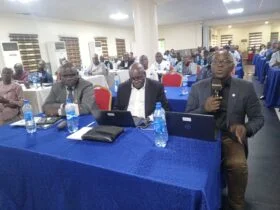According to, although the World Bank support was 750 million dollars, states in the federation and the FCT achieved result worth 2.2 billion dollars.
The national coordinator said that both nationally and internationally, the programme had been adjudged as one of the best post-crisis response intervention by the World Bank.
“In the case of Nigeria, it is one of the best performing portfolios among the World Bank credit portfolios in the country,” he said.
He said the second phase of the programme, tagged 2.0, would be building on success of the first phase to become more resilient.
“2.0 goes beyond recovery from emergency because federal and state governments institutions will use it to respond to shocks and related crises that affect the poor and vulnerable.
“The World Bank has invested through the credits about 795 million dollars, but the state governments have produced results in excess of 2.2 billion dollars.
“That means about 30 per cent of the World Bank credits has contributed to the whole of this result that we are all celebrating while the state government has invested over 70 percent of these resources.
“NG-CARES 2.0, the total credit value coming in is about 500 million dollars,” he said.
Obaje said that the criteria for selection of beneficiaries would still be the use of social register, adding that states social register is going to be strengthened.
Prof. Foluso Okunmadewa, World Bank Consultant on NG-CARES programme said that the 1.0 did well in in tackling poverty.
Ukumadewa said that the programme started during the COVID-19 crisis, when the lives of people were threatened and their livelihoods at stake.
He said that because of the post-COVID impact of the programme , states and the federal government requested to integrate it into the system of government as a shock-responsive mechanism.
He said that the stakeholders forum was aimed at revision of the operations manual such that it can now become a part and parcel of government structure and government system.
The Auditor General of Jigawa State, Garaba Muhammad-Dutse, said that phase one of the programme impacted farmers, small, medium enterprises and other vulnerable groups who were empowered in the state.



